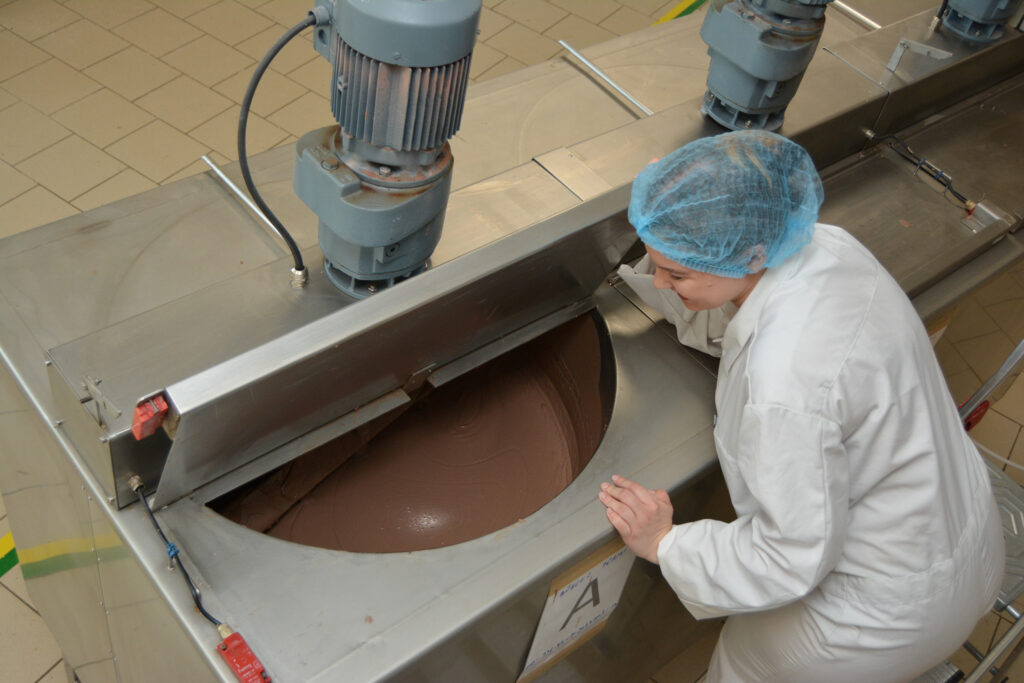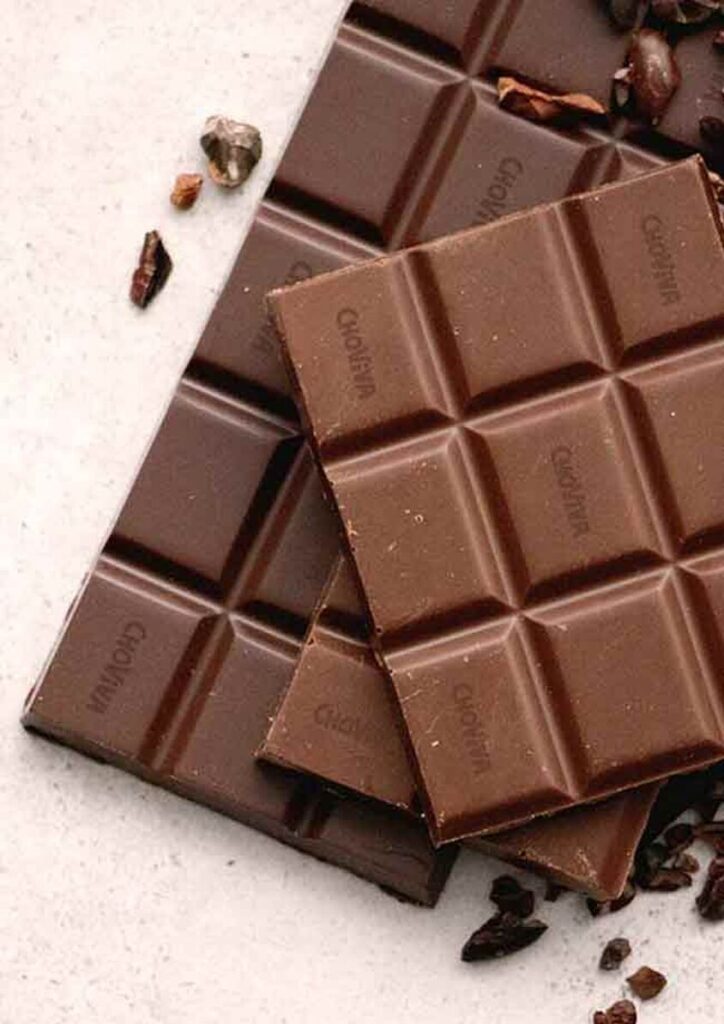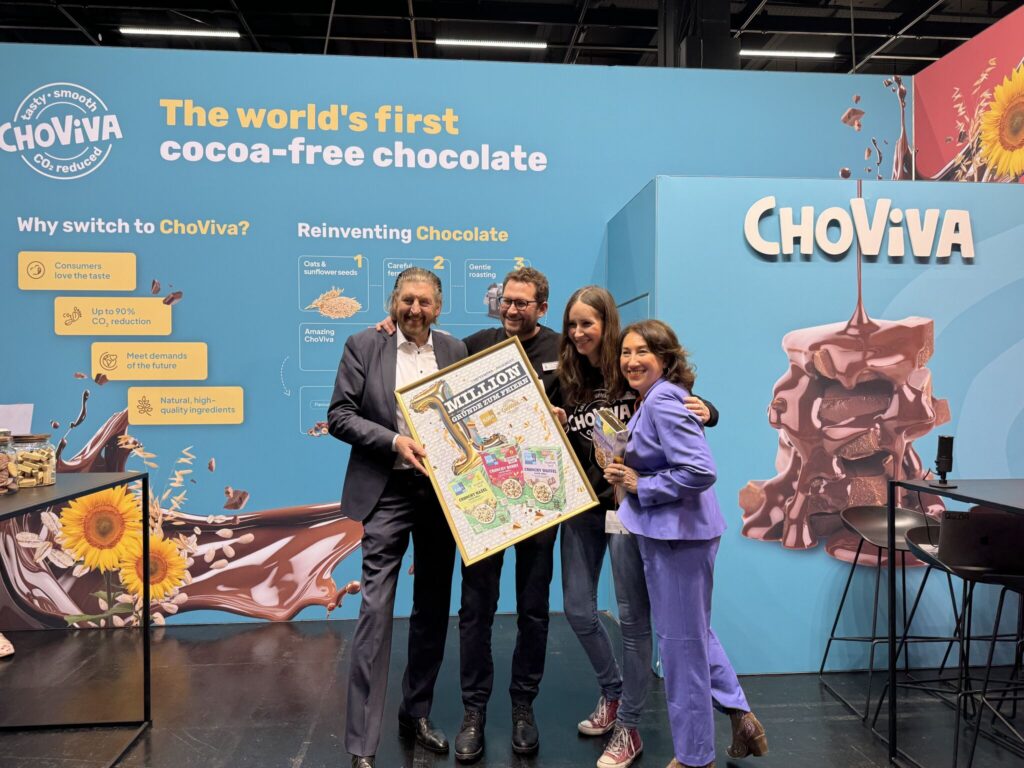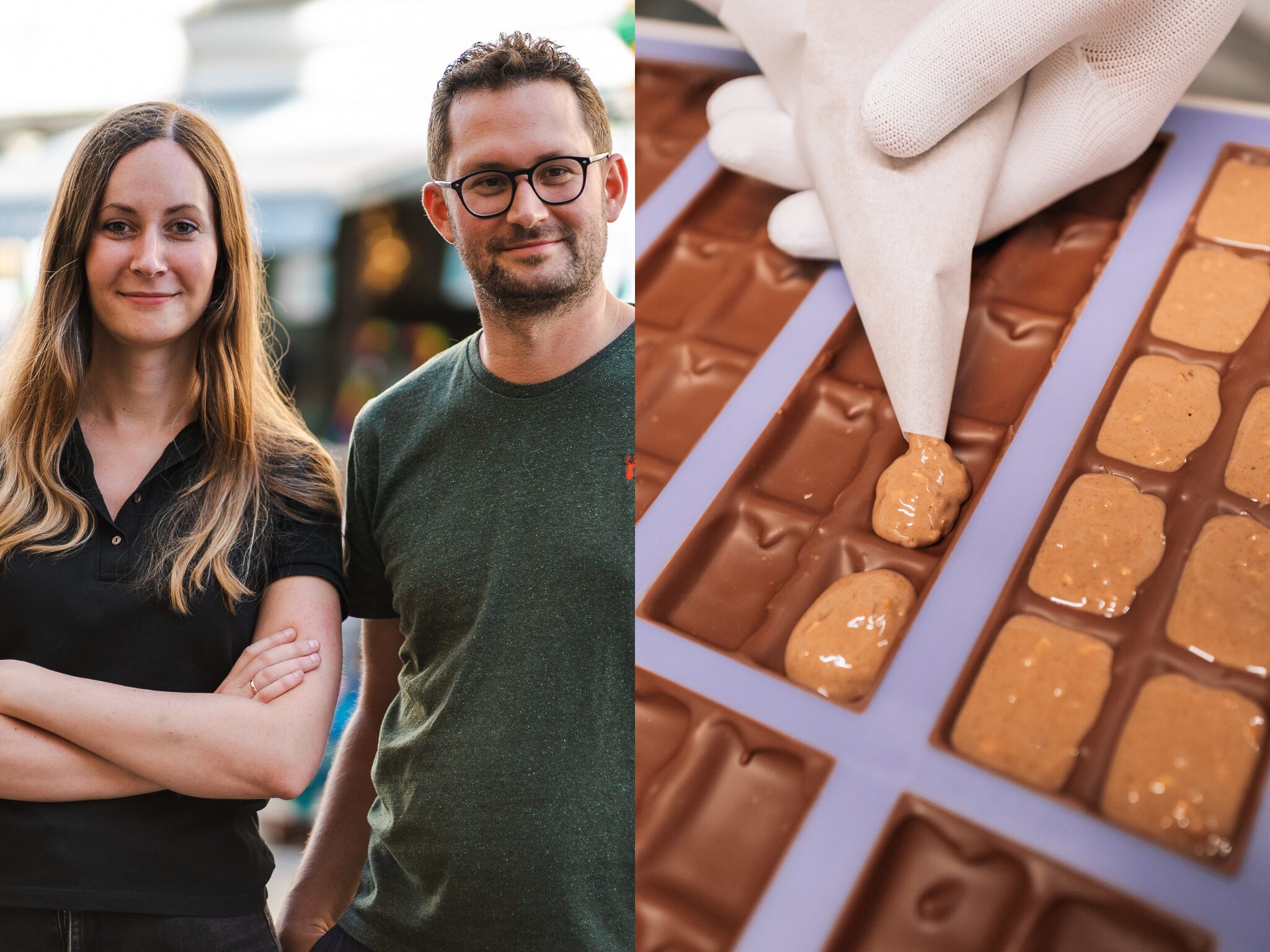Planet A Foods Raises $15.4M in Series A Funding, As It Nears UK Launch for Cocoa-Free Chocolate
6 Mins Read
German fermentation tech startup Planet A Foods, the parent company of cocoa-free chocolate brand ChoViva, has secured $15.4M in a Series A funding round. On the heels of partnerships with industry giants, It plans to introduce its product in the UK this year.
Planet A Foods, founded by twin siblings Max and Sara Marquart and previously known as QOA/NoCoa, has closed an oversubscribed Series A round worth $15.4M, bringing total investment to $23.4M (following $8M in seed funding). The financing round was led by climate VC World Fund, with participation from Omnes Capital, Cherry Ventures, Mudcake, Nucleus Capital, TriplePoint Capital, and Feast Ventures, among others.
The company will use the capital to make strategic hires, fuel mass-market expansion and drive down costs for its cocoa-free chocolate brand, ChoViva. The startup has had a massive 12 months, inking deals with companies like German retailer REWE, where it has launched several products in collaboration with other manufacturers, as well as Griesson-de Beukelaer, Peter Kölln, Lufthansa and Lindt.
Planet A Foods has already used some of the funds to scale up production at its facility, which now has the capacity to produce 750kg of product per hour. Speaking to Green Queen, CEO Max Marquart said the business now plans to extend its tech platform to other ingredients (including palm oil alternatives) and expand to the UK and the US.
“Fuelled by the funding, we not only broadened our product portfolio but also enhanced taste and texture, solidifying our position as the leading force in the alternative cocoa and chocolate sector,” said co-founder and CTO Sara Marquart. “The Series A additionally expedited the advancement of our technology platform, allowing us to hire top-tier experts in the realms of lipids, chocolate, and synbio.”
Tempering chocolate’s climate impact

Founded in 2021, Planet A Foods’ flagship cocoa-free chocolate is made from a base of oats, sunflower seeds and shea butter, leveraging a proprietary fermentation process that turns these ingredients into cocoa mass and cocoa butter. The resulting product is described as having a “melt-in-the-mouth texture” and “full-bodied chocolate flavour”, and can be used as both a 1:1 replacement of conventional chocolate or in hybrid formulations.
ChoViva contains 30% less sugar, and claims to have a “very low” carbon footprint, as a result of using local ingredients and having short supply chains. It speaks to a key problem with the chocolate trade, which has a detrimental effect on the climate. Dark chocolate, for example, is second only to beef in terms of foods with the most emissions, while cocoa beans have one of the highest carbon opportunity costs (the amount of carbon lost from native vegetation and soils to produce food).
Chocolate is also linked to mass deforestation, thanks in large part to the widespread use of palm oil (which is part of products using ChoViva as well. Last June, the EU has enacted legislation that would see cocoa and chocolate linked to deforestation banned in the bloc, while in the US, the Biden administration was sued in August to block imports of cocoa harvested by children in West Africa. Additionally, scientists have warned that cocoa trees are threatened – and a third of them could die out by 2050 – which could lead to a global chocolate shortage.
According to an independent life-cycle assessment by CarbonCloud, the vegan version of ChoViva’s chocolate alternatives (made with oat flour instead of milk powder) can save up to 90% in emissions compared to conventional chocolate, with its lifetime carbon footprint estimated at 0.86 to 1.8 kg of CO2 per kg of product. Plus, if only 5% of the global chocolate consumption (about 10 million tonnes, according to Planet A Foods) would be substituted for ChoViva, it could save the equivalent of 1.5 to 1.9 million cars being driven per year.
The funding round will also help ChoViva become cost-competitive with conventional chocolate. Cocoa futures – standardised trading contracts with predetermined prices for specific cocoa quantities on a future date – have hit a 45-year high, appreciating over 40% year-over-year in the US alone. Still, the global chocolate industry (already worth $254B) is expected to continue growing by 5.6% annually until 2028.
“In the future, chocolate will become more expensive than caviar unless new steps are taken,” said Max. “We are working every day to be part of the solution with ChoViva, through building a second pillar next to chocolate to take some load off the cocoa supply chain.”
He added that the company’s Series A has enabled the business to deliver large-scale production and continuous supplies to customers. “We have become a reliable, trusted industry partner for the German confectionery industry, and demonstrated that we can deliver at price parity with traditional chocolate providers.”
Plans to apply for regulatory approval of precision-fermented fat

Now, Planet A Foods is gearing up for new launches – both in terms of products and ingredients. In September last year, its founders told this publication that it was working on creating its own fats, with plans of developing a precision-fermented ChoViva Butter by converting single-cell oils, agricultural sidestreams and local feedstocks like beet sugar into a fat resembling cocoa butter.
“With ChoViva Butter, we can hit the price point that our customers are used to with conventional cocoa butter, thus offering the benefits of carbon footprint reduction, mitigation of deforestation and offering a local alternative, with short and stable supply chains,” Sara explained at the time.
The latest capital injection will take Planet A Foods a step further. “We are investing 80% of our investments in the development of our technology platforms, such as expanding our ChoViva product portfolio and developing new, fully automated means of production to be even more competitively priced,” Sara told Green Queen.
She added: “We are also expanding our lipid platform to other fats and oils besides cocoa butter, such as palm, and scaling up our production capacity to be the first of a kind to commercialise sustainable lipids as ingredients for the industry.”
Sara confirmed that Planet A Foods has already started testing the precision-fermented fat for pre-commercial applications with its B2B customers. “Since we use GRAS [Generally Recognized as Safe] organisms, we will go for the ‘no questions asked’ letter by the FDA in the US, and for novel food approval in the EU, launching our lipids soon as well,” she revealed.
Major commercial collaborations with Peter Kölln , Lindt and Rewe Group

In the last year, the company has collaborated with the likes of Peter Kölln to debut a vegan muesli range (which sold its one-millionth pack this week), Griesson de Beukelaer for a plant-based Cereola cookie, Rewe’s own-label Spitz for a Neapolitaner Waffeln, Lindt to introduce a hybrid vegan Hello! chocolate for Veganuary, Lambertz to launch an alt-chocolate snack line, as well as Hans Freitag and FruTree. Plus, it linked up with Lufthansa to offer ChoViva milk chocolate as a sweet treat on select flights.
Several of its products have been available at Rewe stores, and it’s now preparing to launch in other German retailers too, alongside an extended portfolio at Rewe.
ChoViva to roll out in the UK later this year
Next up: Planet A Foods is making a move for the UK market now, with the same B2B strategy that has proven so successful in Germany. Max stated that the rollout is already underway, with the first cocoa-free chocolate products expected by Q4 this year. New releases using ChoViva will span confectionery, snacks, cereals and ice creams.
“We are gearing up for our international expansion in 2024 and beyond, and are looking for the next Willy Wonkas to help us scale and enter new markets,” he said. The brand is now kicking off “meaningful conversations” with strategic distribution partners in other European markets, as well as Asia and the US.
It will compete in a global space populated by Italy’s Foreverland, London-based WNWN Food Labs, and US startup Voyage Foods (which itself closed a $22M fundraiser recently) – the latter two have also conducted LCAs that revealed their innovations emit 90% fewer GHG gases than conventional chocolate.




